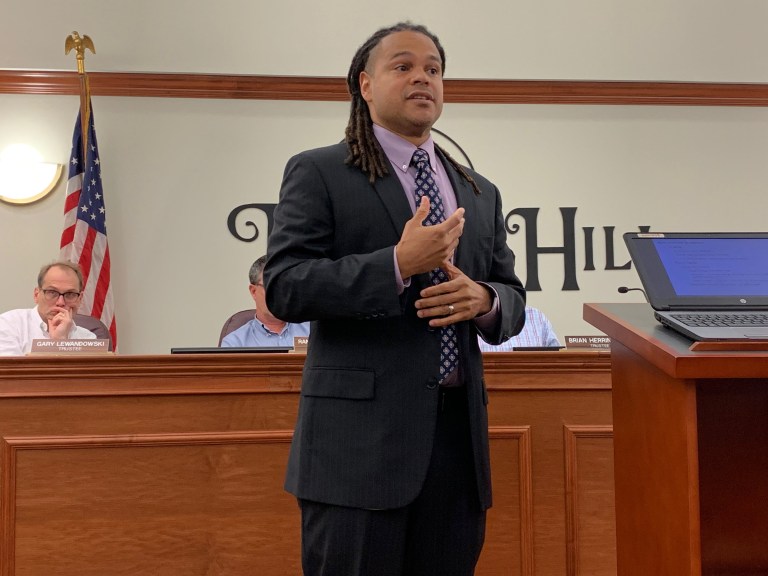
ExteNet has filed a lawsuit against the Village of Flower Hill over its decision to deny all 18 of the wireless infrastructure provider’s cell node applications.
The Illinois-based company claims that Flower Hill refused to process ExteNet’s permits, implemented an illegal moratorium on cell node applications, used subjective and undefined aesthetic standards when reviewing ExteNet’s applications and denied the application based on ExteNet’s failure to meet “phantom local requirements,” according to the lawsuit.
The village board unanimously voted to deny ExteNet’s application to install cell nodes in the village’s right of ways on last month primarily for ExteNet’s failure to specify the exact locations of the proposed cell nodes despite village requests for clarification.
Verizon Wireless contracted with ExteNet four years ago to install small cell devices in a number of Long Island communities to improve its 4G network. The Village of Lake Success in Great Neck is also the subject of a lawsuit from ExteNet for denying nine of 13 proposed cell nodes.
ExteNet contends that Flower Hill’s determination that ExteNet had provided the board with a special permit application with conflicting plans and options instead of “specific alternate plans” is a “charade.”
“Ignoring that ExteNet actually provided the Board with photographs and simulations of the three options for the decorative poles for it to choose from along with photographs and simulations of the PSE&G utility poles and small cell attachments,” the lawsuit said, “the findings erroneously state that ExteNet failed and refuse(d) to identify ‘site-specific infrastructure types’ for each proposed installation.”
The complaint filed in the Eastern District of New York details a long application process in which the company filed the initial applications in May 2017 and finally received a decision in September of this year.
ExteNet states that after filing the application, the company was informed by the board that the village would be implementing a yearlong moratorium on cell nodes that lasted from August 2017 to August 2018.
“The moratorium enacted by the Board, by its terms, expired August 1, 2018,” the lawsuit states. “However, in practice, a de facto moratorium continued to be in effect post-August 1, 2018.”
After multiple meetings with the board during and after the moratorium was in place, ExteNet said it filed a site plan review application in February of this year “per the Village Board’s direction.”
In March, after ExteNet filed the application, the board adopted a local law that modified its village code to “specifically regulate small cells,” the lawsuit reads, and ExteNet was told by the board that its application would be processed as a request for a special permit under the amended code.
ExteNet alleges that Chapter 209, the village’s section of the code that addresses small cell wireless facilities, does not define “stealth technology designs” or what is “aesthetically pleasing” to the board, both of which are conditional to approval.
The wireless infrastructure provider seeks an order that will grant ExteNet all necessary permits and authorization to immediately deploy infrastructure in the village right of way as proposed in its February application.
Flower Hill’s attorney, Edward Ross of Mineola’s Rosenberg Calica and Birney LLC, did not immediately respond to a request for comment.






